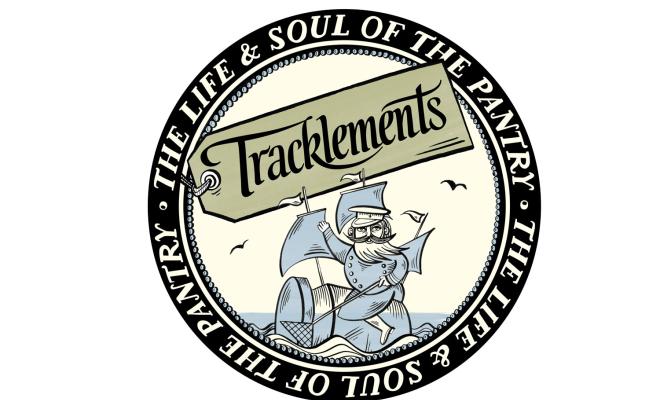In today’s dynamic economic landscape, owner-managed businesses in the UK face many challenges, ranging from economic slowdowns to changing legislation and geopolitical uncertainties.
Bishop Fleming recently surveyed its owner-managed business clients, revealing crucial insights into the key issues affecting these businesses and the sectors in which they operate.
The “Navigating business challenges in a changing landscape” blog series focuses on the top five themes from the survey responses. Bishop Fleming provides in-depth analysis, practical tips, and expert advice through the series to help these decision-makers overcome their challenges.
In this series, the first focus is on the impact of last year’s socio-economic and geopolitical events on owner-managed businesses.
Economic Uncertainties and Geopolitical Factors
Owner-managed businesses are feeling the impact of economic slowdowns and geopolitical tensions, casting shadows of uncertainty over decision-making processes. The shifting global landscape, including Brexit and geopolitical conflicts, adds complexity to business planning and strategy.
Inflation and Rising Costs
Inflation has been a factor in the economy for the first time since the 1970s. This has led to increased costs across various sectors.
From raw materials to fuel costs, businesses grapple with general cost-of-living issues, eroding profitability and challenging financial sustainability.
The good news is that inflation fell to 3.2% in March 2024 from a 40-year high of 11.1% in October 2022. However, gas and oil prices may creep up again due to ongoing global conflicts.
Bank interest rates have risen to a current high of 5.25%, but there is an expectation that they will start to fall again later this year. Delaying interest rate cuts will weaken the economy, according to economists.
Legislative Changes
The ever-evolving regulatory environment presents another hurdle for owner-managed businesses. Changing legislation requires continuous adaptation, impacting business planning and resource allocation. The legislative changes to the operation of the R&D Tax Credit scheme, for example, will reduce the tax benefit available, and the current increased level of scrutiny from HMRC into claims is causing significant administrative burden for those businesses who have made legitimate claims under the scheme.
Weak Demand and Financial Market Challenges
Weak demand and political uncertainties create an unfavourable headwind for businesses operating in various industries.
With a general election to be held later this year, business owners will be concerned about the possible impact on their sectors from new regulations on a change of government.
Fiscal targets
Fiscal targets set by the government can constrain economic growth, according to the Institute for Public Policy Research. While such targets can reduce the possibility of bad decision-making, think tanks also consider that they are stopping the making of good ones, particularly in investment policy.
Client Sector Analysis
Understanding the specific challenges faced by different sectors provides valuable insights into the broader economic landscape:
• Construction, Property, and Real Estate: Concerns about consumer confidence, rising costs, and economic slowdowns are prevalent. Issues such as delays in planning applications and weak demand impact customer orders.
• Professional Services: Key challenges include recruitment difficulties, skill shortages, and global events affecting investor confidence. Rising costs and falling demand add to the complexity.
• Retail: The cost-of-living crisis and inflation are squeezing profitability, while challenges like Brexit and recruitment further compound the situation.
• Healthcare: Rising costs, particularly in wages, and the need to manage expenses are top concerns, alongside staff retention and retirement planning.
• Tourism & Leisure: Economic uncertainties, reduced bookings, and higher operational costs are among the challenges businesses face in this sector.
• Manufacturing: Fluctuating costs, lower demand, and Brexit-related issues impact margins and business expansion plans.
• Food & Drink: Rising energy costs and inflation, coupled with Brexit impacts, pose challenges to profitability and product availability.
• Technology, Media and Telecommunications: Inflationary pressures and difficulties in attracting new business are key challenges, compounded by rising energy prices and global conflicts.
Conclusion
Owner-managed businesses in the UK are navigating a complex economic landscape marked by uncertainties and challenges across various sectors.
As they adapt to changing market conditions and regulatory frameworks, strategic resilience and agility will be crucial for sustaining growth and profitability.
The economy is showing signs of recovery, and economists predict that the improved performance of the service sector, coupled with falling inflation, will help boost the economic landscape.
The 2024 Spring Budget contained some help for business owners, notably the rise in the VAT threshold and the cut in National Insurance contributions, but more help is needed with other business costs. The permanent Full Expensing relief for corporation tax will be good news for some companies looking to invest in new plants and machinery.
Owner-managed business series
This is an ongoing series. Check out Bishop Fleming’s other articles in the series:
• Adapting business operations
• Adapting to cost pressures
• Adapting to workforce challenges
• Adapting to global and external factors
Get in touch:
To find out how Bishop Fleming can help you or your owner-managed business, explore their Owner Managed Business page
Adapting to economic challenges as an owner-managed business in the South West
Mon, 7 Oct 2024
MJBaker and Westcountry Foodservice, leading providers of premium foodservice solutions in the Southwest, are thrilled to announce...
Mon, 10 Feb 2025
A free scheme to support food and drink producers, manufacturers, hospitality and food service businesses is now open for...
Fri, 14 Jul 2023
We are excited to announce that this year's awards ceremony will be taking place during the evening on Monday 6 November at Sandy...
Thu, 13 Jul 2023
Tracklements has launched a new range of 150ml hot sauces to help spice up everyday meals at home, featuring natural and gluten...



